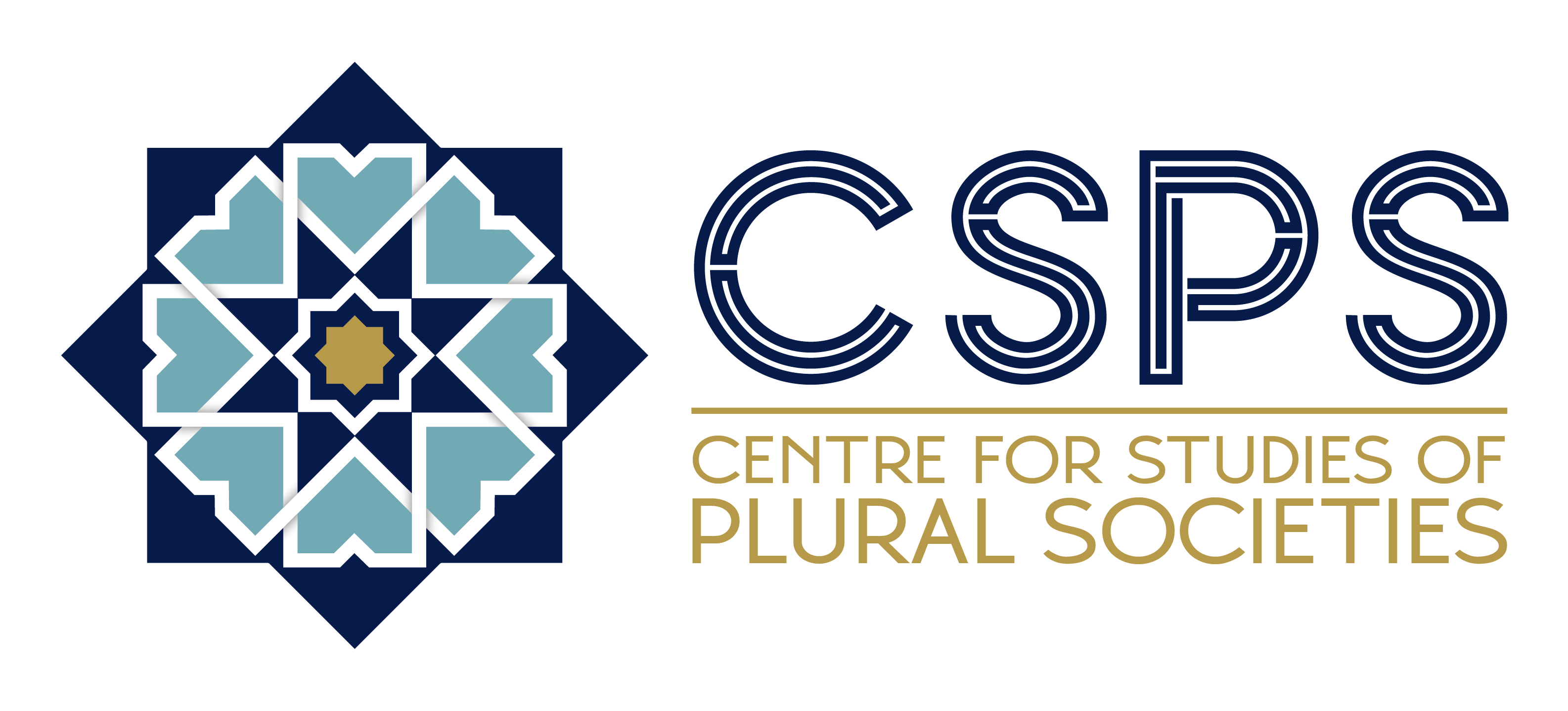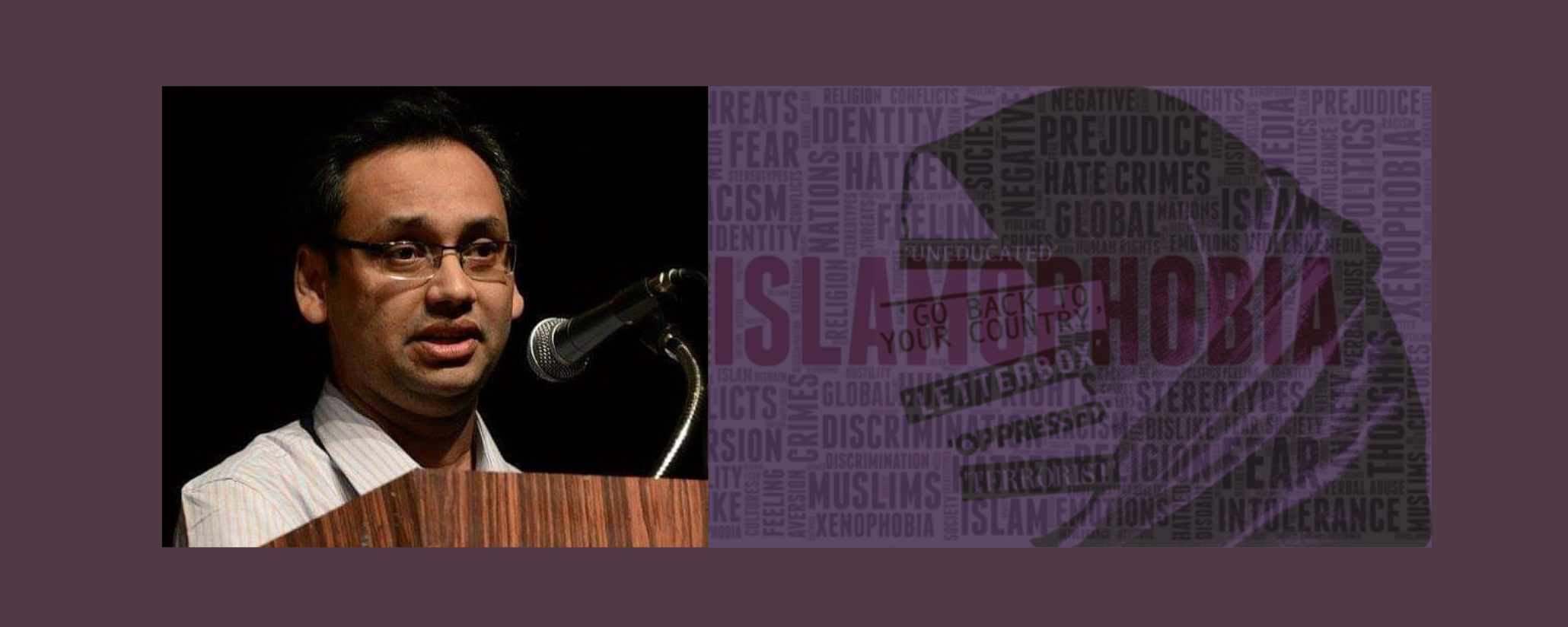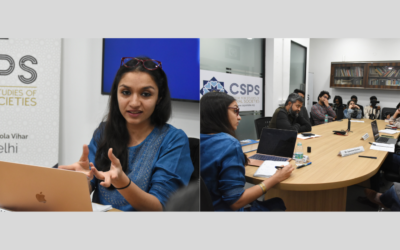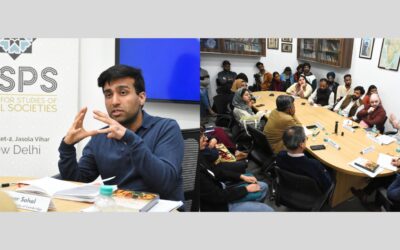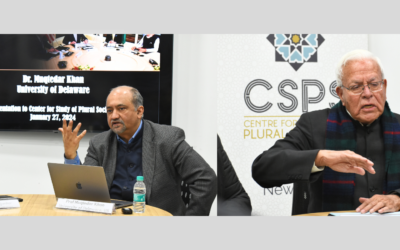The Centre for Studies of Plural Societies (CSPS) conducted a lecture on “Islamophobia: Liberal-Democracy, Nation-State and Beyond” on 31st January 2022. The talk was initiated with the primary purpose of defining the phobia and the articulating grounds of the fear, which dialogued a lot of recent political happenings in the West and far-right authoritarian regimes on the unclenched growth in the global frontier. The interaction with a colloquy of Islamophobia also stretched to the unseen ‘beyond’.
About the Speaker: Dr. Amir Ali is an Assistant Professor at the Centre for Political Studies, School of Social Sciences, Jawaharlal Nehru University, New Delhi. He specialises in teaching courses in political theory and has a keen interest in multiculturalism. He has authored the book Brexit and Liberal Democracy: Populism, Sovereignty and the Nation-State (Routledge), along with his recent publication on “South Asian Islam and British Multiculturalism” (Routledge). He had previously taught at Jamia Millia Islamia University, New Delhi and was a Visiting Fellow at St Anthony’s College, University of Oxford, UK.
Commencement of the Session:
Dr. Amir Ali started with the poignant point of Islamophobia that crippled the liberal democratic world of 21st-century nation-states. The nomenclature “Islamophobia”, which saw its birth in the last century, was thus adage as an unrealistic and unconditional fear for the practitioners of the Islamic religion. However, the multitudes of unbridled camouflages that go into the fear’s perception and identification remain unanswered. It was the point of entry to the topic by the speaker, who negotiated the birth and growth of the riddling fear making the Brexit debate his circumventing grounds of thought.
The discussion stressed the point of relevancy of anti-Semitism along with the conjoined reality of the sapience of Islamophobia in the West. The coalesced interplay of the history of threat to Jews and the present juggling of Islamophobia came from the negotiable ground of society which perpetuated the greatest ultimatum and notched persecution of Jews in the past and the Muslims of the present day, opined Dr. Ali Another factor behind the imposing symptom of Islamophobia comes from the society that crucially tries to out-shape and denies the fact of Islamophobia. Thus, denial of phobia causes the reverse psychology of the psychic society to understand the shape of the fear. Dr. Ali made the crucial juncture of understanding the fear and the role of the nation-state in cumulating the fear with the added baggage of nationalism. To stress this point, he returned to this thetical ground of cemented growth of anti-Semitism and Islamophobia in the West. The hatred mechanism of the gas chambers of Central Europe, which stimulated the sprawling of loathing against the Jews, was put forward through the words of Hannah Arendt by emphasising their anomalous position between the nation-state. Their dissimilation within the central rubric of the idealised monotone of nation-state made them the culprits to be murdered by the nation-state, which from its perceived wombing in 1492, Iberian crisis and the birth through 1648, Treaty of Westphalia treated itself as the central epitome of loyalty swayed through nationalism. 1894, Dreyfus Affairs made matters worse by kindling nationalism synonymous with unflinching loyalty, including extra-territorial credentials of loyalty. It was thus on the note of the politically fossilised structure of the political cubicle of the nation-state, which carefully persecuted the constructed “other” in the dialogue of continuance through its apparatus of adorning emotions of loyalty. It was this continuance of hatred that gave birth to Islamophobia about a hundred years later of anti-Semitism.
The violence towards anthropological biological race was replaced with barbarity towards cultural race – the main feature of “new racism” that dominated the last quarter of the 20th-century world. This deviation put Islam with its followers at a critical juncture of aggression. Dr. Ali highlighted that the position of fear came from the 1989 Rushdie Affair, which entrenched the liberal democracies of the majoritarian world with the fear that Muslims, with their Fatwa (Islamic decree given by clerics), were a complete misfit to the jigsaw of free speech to the world. This cataloguing of misinterpretation about the Muslims made them stand in a difficult position within the nation-state. Dr. Ali not only stressed the conjoint between the two fears but also impinged upon the thin line of difference which accounted for the almost a hundred gaps between the two. Thus, the century gap made the historic fear towards the Jews a not-so-well play of the Labour politics of the UK but the Islamophobic fears of the recent well-stringed electoral win for the Conservatives. This trend was not only discernable in British politics but played the excellent lines of flute in Indian politics with the recent 80::20 speeches of Yogi Adityanath. Though the gap drove the shakes of inquietude against the Jews and Muslims, the sowing line of incorporating prejudices by the nation-state remained the same.
On this note of critiquing the psychic self of the monochromatic nation-state, Dr. Ali spoke of four broad macro-levels at which Islamophobia existed. The first was stretched to the oriental disposition of Edward Said, who promulgated a distinctive way of looking towards Muslims by stereotyping bearded kurta-clad men and hijabi women. The second came with the downing of multiculturalism, as noted in various global events. The third level conjured up with the rising levels of incompatibility of democracy, where the failure itself was always negated. The final one coincided with the rise in global war and terrorism whereby the 9/11 incidents of Al-Qaeda made it the prominent point that “all Muslims are terrorists”. It was on this sceptical note that the speaker put a hyphen and pointed out the various terrorist organisations like the Japanese Red Army, Lord’s Salvation Army and others which are non-Islamic organisations operating in non-Muslim countries, forcing the listeners and students and researchers of social science to grasp their end and question their understanding of the liberal- democratic world with sedimented nation-states and their irrational supposition of Islamophobia. Dr. Ali concluded the hyphened context with a jigsaw puzzle where the fit of “beyond” was left to the supposition of bewilderment of post-modernist time.
The report is prepared by Reshma Deb, Research Intern at CSPS
